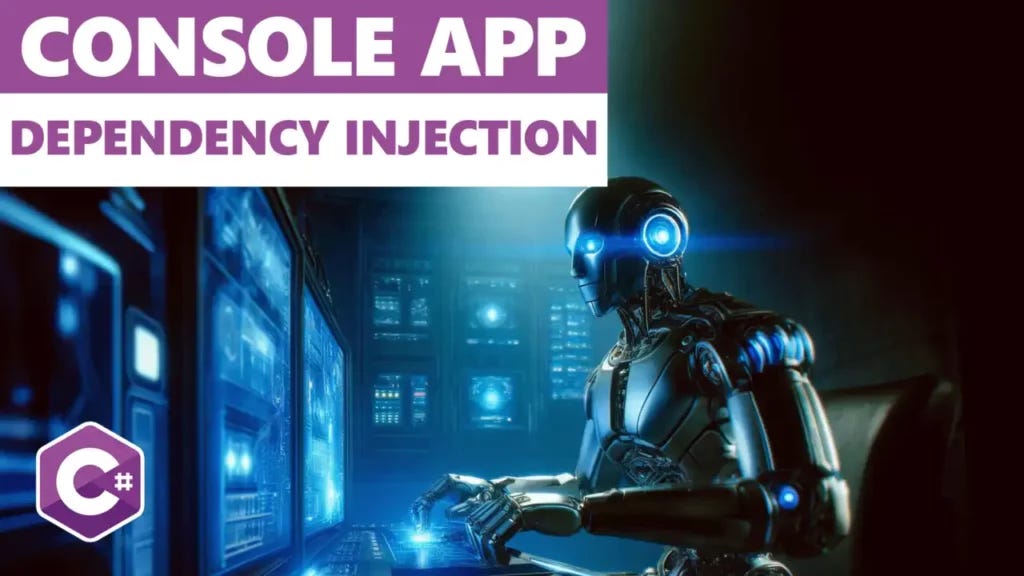Developer Burnout – Dev Leader Weekly 44
TL; DR:
Identify as early as possible
Can creep up over time
Doesn’t look the same for everyone
What’s In This Issue
Exclusive Article: Developer Burnout
You’ve Probably Heard About This Before…
Burnout probably isn’t a new term for you if you’re a software engineer or someone aspiring to be one. While it’s not unique to software engineers, this is a common thing that can come up time and time again throughout people’s careers.
I think it’s really important to talk about burnout because as with all mental health topics, we don’t discuss them enough. There’s a lingering stigma around mental health and if we’re not talking about it, we’re not making as much progress as we could be.
Burnout is a topic that I’ve talked about before, I’m talking about it now, and I’ll continue to raise awareness. It’s too important to neglect and the consequences can be dire.
What Is Burnout?
Burnout is generally described as a feeling of overwhelm and exhaustion from prolonged overwork — that’s my generalized working definition of it based on how I hear many people describe it. It’s sort of like being depressed but the framing is around work.
But I think it can be more than that. I’ll describe some of the signs of burnout in the next section, but they can manifest in different ways, and often this is over a long period of time.
Working on a project that you don’t like for a day probably won’t burn you out on its own. But you could be on the brink of burnout from other factors over an extended period and this one project gets you to your tipping point.
The point is that burnout can creep up on you over time. And if it wasn’t bad enough to be going through it, the fact that it can creep up over time means you might not notice it until long after you’re going through it. Sounds strange, right? But we’ll see more of this in the signs of burnout.
What Are Signs of Burnout?
Being able to try and detect burnout early is incredibly helpful because you can try taking action sooner. Awareness is key. Here are some things you could be looking for:
Building sense of resentment for what you’re working on, who you are working with, and/or who you are working for. Overall, you’re not feeling great and might not fully realize it, but you’re starting to notice that it’s got to be related to what you’re working on or who you’re working with.
Lack of engagement and disinterest in what you’re working on. This can be surprising when you start to realize something that you really enjoy is no longer interesting.
You’re feeling tired or exhausted all the time. This can be pretty common if your burnout feels like it’s originating from being overworked with tight deadlines.
You start to realize other areas of your life are lacking or starting to fall apart. This could be from social interactions to hobbies to personal hygiene. It can manifest in different ways.
There are other ways that burnout can start to show up, but this is a short generalized list. Overall, you’re starting to not feel like yourself. You might not realize it right away and you might not even realize it until people who care about you point it out.
My Personal Experience With Burnout
My first big burnout scenario looked very different from what other people might classify as burnout. I worked at a startup for 8 years, so you might assume that in typical startup fashion they overworked me and I never slept and the forced the inevitable burnout upon me.
But that’s now how it happened.
What IS true is that in typical startup fashion, I worked a ridiculous amount. I worked most weekends and most evenings… for years. But it’s not because my managers or leadership were awful.
I genuinely enjoyed working and being able to build what we were building. It didn’t matter if things were hard or we had challenges to work through or… whatever! There wasn’t anything really more rewarding than being able to write software that would help catch the bad guys and save kids.
I loved every second of it. But it came at a cost. And even though my amazing HR leader would routinely tell me every year “Nick you’re going to burn out”, I didn’t listen. How could I burn out if I loved what I was doing?
But I saw my sign a little bit too late. I developed terrible social anxiety. I couldn’t meet new people unless it was at my own place. I didn’t even feel comfortable visiting my friends if there were going to be other people there. I realized I was embarrassed that all I could talk about was work. I didn’t know how to be normal around other people.
Work had run me down in all of the other areas of my life because I neglected them. Every ounce of energy was put to work and only delayed typical burnout symptoms because I kept tapping into the energy that I’d use for other areas of my life.
What Can We Do About Burnout?
The most important thing is to try and get awareness before it’s too far along. We’ll likely continue to find ourselves in situations as software engineers where we’re set up to experience burnout:
Tight deadlines getting tighter
Projects we don’t love that drag on
Scope creep and requirements building up
Challenging teammates or clients that make projects hard
Unfortunately, in many cases, we may not have direct influence over the things that lead to burnout. But that doesn’t mean we should just give up on trying to improve things:
Have open and honest conversations with your manager about it. If you have a good manager, they will take this feedback and try to ensure they can help prevent or reduce these effects. Yes, sometimes we need to push hard on deliverables — but it should be the rare case where you’re up late for the last week before a release.
Try to be part of the positive change. If there are systematic things that repeat as part of your software engineering process, try using a retrospective process and proposing changes that can drive change improvements. Maybe there’s a better way to work with product/customers that prevents significant scope creep or patterns in why deadlines keep slipping. If you reflect, you might come up with some great things you can try.
Ultimately you’ll need to try and figure out what kind of boundaries you want to set for yourself and how much you’re willing to fight for them. If your boundaries aren’t being respected, you need to make a difficult decision if you’re working in an environment that will be good for you long term.
What’s Next?
If you’ve gone through burnout before, I’m sorry to hear that. I know that it can be very difficult, and it’s hard to bounce back out of that to start feeling like yourself again.
Remember that you want to build awareness so that you can spot signs of burnout early. The sooner you can recognize it, the sooner you can start taking some action to try and get things back on track.
I’ll be discussing burnout on my livestream on Monday May 13th at 9:30 PM PDT, so if you have questions, comments, or concerns you want to walk through on burnout then stop by!
Join me and other software engineers in the private Discord community!
All of my weekly vlogs are now on YouTube which are accessible via membership!
Remember to check out my courses, including this awesome discounted bundle for C# developers:
Weekly Recap
Fail Fast Or Get Defensive? – Handling Exceptions in C#
When it comes to programming, exceptions are inevitable. We’re going to have to deal with error cases… But how we approach our error handling is up to us!
Two very common approaches on opposite ends of the spectrum are getting very defensive with try catch blocks or failing fast. In this video, I’ll elaborate on when and why you might want EITHER of these options, along with some other thoughts for your exception handling in C#.
Imposter Syndrome and YOU – Principal Software Engineering Manager AMA
This was an AMA livestream! This episode focused on: Imposter Syndrome! Remember to check out the next livestream!
The Dumbest Reason To Get Fired? – Navigating LinkedIn Nonsense
We can’t believe everything we read on the Internet! As a content creator, I understand that creators (which includes me!) want to make catchy titles and posts. But this particular post about getting fired for asking bad questions is a bit too over the top for me — especially when it gives you a call-to-action to help avoid this made-up issue.
In this video, I’ll review why I think this is a lousy take and also what I think this original poster *might* have been trying to say. I think there are multiple sides to everything, so I try to give others the benefit of the doubt. But no, you should NOT get fired for asking questions. Nope.
Let’s Get Defensive With Mocks – LET’S CODE LIVE!
This live stream focused on how we handle exceptions, and specifically failing fast vs being defensive. There are different use cases to consider!
Imposter Syndrome and YOU – Interview With Julia Hohenadel
Imposter syndrome is something that affects many people — especially software engineers! But imposter syndrome is not just limited to aspiring programmers or junior software engineers… In fact, the more success you have, often the more imposter syndrome that you encounter.
In this video, I was joined by a previous intern of mine (Woohoo Magnet Forensics!), Julia Hohenadel, who knows allllll about imposter syndrome. Julia is a great speaker on imposter syndrome, and I’ve even had her come to speak at Microsoft for us!
Thanks for the awesome chat, Julia!
You Are SCREWED Without A Full GitHub – A Wannabe Programmer
Unfortunately, I can’t make this stuff up… Some people really are out there on the Internet making claims like this. I’ve met many amazing people from LinkedIn, but holy moly there are some ridiculous takes to sift through as well — and some of them I feel are dangerous for others to hear.
That’s why I made this video. Yes, writing code is awesome. Yes, if you can contribute on GitHub, that’s great. Yes, being active on GitHub can be a very positive thing… But you are absolutely not screwed if you don’t use GitHub. It’s just not a reality.
I have been hiring software engineers as an engineering manager for 12 years. Guess how many full GitHubs I’ve seen?
ASP NET Core Plugins – Live Coding in C#
This was a live stream on building ASP.NEY Core plugin architectures in C#. Towards the end of the video, the chat had questions about software engineering and landing jobs that I tried to spend additional time on.
How To Use IServiceCollection in Console Applications – What You Need To Know
How can you use an IServiceCollection in console applications to get dependency injection? Is this a viable option if you don’t want to use Autofac?
As always, thanks so much for your support! I hope you enjoyed this issue, and I’ll see you next week.
Nick “Dev Leader” Cosentino
social@devleader.ca
Socials:
– Blog
– Dev Leader YouTube
– Follow on LinkedIn
– Dev Leader Instagram




